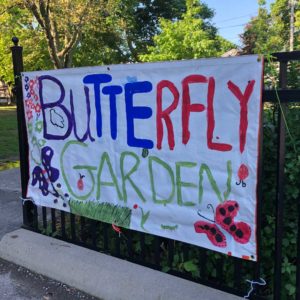
Last month I wrote about the Leaside Garden Society’s Junior Gardener Program and how the many benefits of garden-based learning can help our youth to become smarter, happier and healthier.
After quoting encouraging words from Rick Hutchings of the LGS, my closing line was “Here’s to school gardens in Leaside!”
But soon after that article was released, the Ford government announced their own vision of education by increasing class sizes (high schools will be hit the hardest), which will in turn eliminate thousands of teaching jobs. To make matters worse, they plan to implement four mandatory e-learning classes that will add new challenges for both students and teachers.
Is there any hope for school gardens now?
This news certainly makes things harder because no matter how big or small, a school garden requires funding, expert planning of the site, a gardening coordinator, a maintenance plan (especially for the summer months) and most important of all, participating, enthusiastic, supportive teachers.
That list may appear daunting, but with creative resourcefulness, almost everything listed could be had through grants, partnership programs and with local volunteers. Organizations like the Leaside Garden Society, Evergreen, Green Thumbs and Tree Canada are just a few, but there are many that can help. The only difficult part (especially now) is the time commitment required by the teachers. So, are school gardens really necessary?
It’s not because I’m a gardener that I love the concept and it’s not because Leaside is a Garden City that it all fits so well. The reason school gardens are important and why they are sprouting up all over the world is that garden-based learning has been well researched and proving to be more than just a valuable teaching tool that’s both enriching and enjoyable. With teen anxiety and depression reaching an all-time high, these gardens are having a positive effect on the mental wellbeing of students and providing an educational sanctuary away from the pressures of test scores, social media and homework overload.
According to GreenHeart Education (www.greenhearted.org/school-gardens): “School gardens are a wonderful way to use the schoolyard as a classroom, reconnect students with the natural world and the true source of their food, and teach them valuable gardening and agriculture concepts and skills that integrate with several subjects, such as math, science, art, health and physical education, and social studies, as well as several educational goals, including personal and social responsibility.”
So, yes, I do believe school gardens are necessary, for every child in every grade. And the best part is knowing that here in Leaside, help is all around. We just need to come together and begin because even the smallest school garden can make a positive difference for now and the future.


